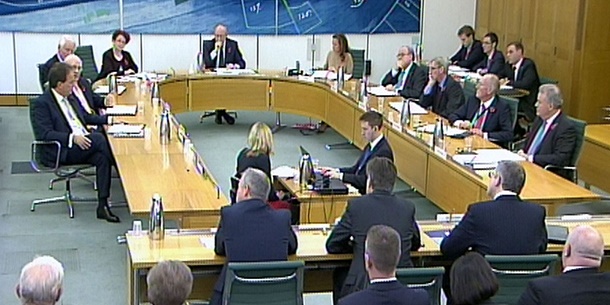
The question of privacy online is not a case of Orwell versus the terrorists. It’s far more technical, more nuanced, more than that (these things usually are). But if it continues in the same vein, with the same arguments repeated, and the same battles waged, unless something changes.
To arrest that slide, our intelligence and counter-terrorism work needs to change what it does quite dramatically. We desperately need a strong and publicly supported intelligence architecture to help keep us safe: from cyber espionage, terrorism, nuclear proliferation and dictatorial regimes that aren’t limited by democratic controls. I don’t want a denuded intelligence agency. But in a post-Snowden world, the intelligence agencies need to earn respect and trust rather than assume it; they must respond to the challenges thrown up by new and ever-changing technology to stay both effective and popular.
One way is to transform how we oversee spy work. Spying is by definition secretive; but we rightly want to know these powers to curtail liberties are used proportionately, and when strict, tightly defined and legal requirements are met. Intelligence work in general is predicated not only on the public’s consent and understanding, but also on the active partnership and participation of people and communities. Therefore, because some degree of secrecy will always be necessary, it’s important that people have confidence in whatever system oversees it all. As it stands, though, the oversight and scrutiny systems are typically staffed by people drawn from the same establishment they are supposed to oversee. The main oversight structure at the moment is the Intelligence and Security Committee (ISC). I’m not denigrating their work or the individuals on the committee – I’m quite certain every member is decent, hard-working and upstanding. But they are hardly a reflection of society writ large. Judge for yourself:
|
|
% on the ISC |
% general public |
|
Knights |
22 |
0.000018 |
|
Women |
22 |
51 |
|
Ethnic Minority |
0 |
13 |
|
Under 40 |
0 |
44 |
The set-up is so distant and unfamiliar from most ordinary people – us, the people subjected to surveillance – and so close and familiar to the people who are part of the system itself. (The chair of the committee, Sir Malcolm Rifkind, is a former Defence Secretary and Foreign Secretary). This risks creating a very narrow perspective on what’s reasonable for intelligence agencies to do. At the heart of the legal infrastructure governing oversight – especially the current law, the Regulation of Investigatory Powers Act – are three animating principles: proportionality, necessity and legitimate aim. The principles of ‘necessity’ and ‘legitimate aim’ are fairly easily defined within an operational context, but proportionality is not because it is made by balancing the seriousness of the intrusion into the privacy of the subject of the investigation against the need of the activity in investigative terms.
In the context whereby privacy is less clearly understood, different people, with different backgrounds, life experiences and beliefs will quite legitimately take different positions on whether some acts of intrusive surveillance are proportionate. We need therefore to broaden the backgrounds and experiences of those who are able to contribute to the oversight of whether a judgement about a given interference with privacy is proportionate or not; and broadening it out will I think also engender greater trust in the system.
I’m not in favour of seeking to make every single institution a cross-section of society, aside from a small number of significant areas. But we can do better than this. Here’s a suggestion: bring in ordinary people. Create a “surveillance jury” of randomly selected members of the public who would sit alongside, or even on, the ISC to produce post hocadvice on a small number of selected cases of intrusive survifeillance, randomly selected for review. It should be supported by other oversight bodies, and a small technical secretariat of experts, to assess whether, in each case, the interference with privacy was a proportionate one. We should go further still: ensuring some degree of involvement of civic society in intelligence oversight. Independent, responsible members of civic society can better understand the practical pressures and daily trade-offs of intelligence work.
Embedding civil liberty campaigners in police command centres during the policing of demonstrations has worked well. Subject to agreements on what can and cannot be published, this has allowed the presence of an informed, independent commentary of police action. Let’s do the same here.